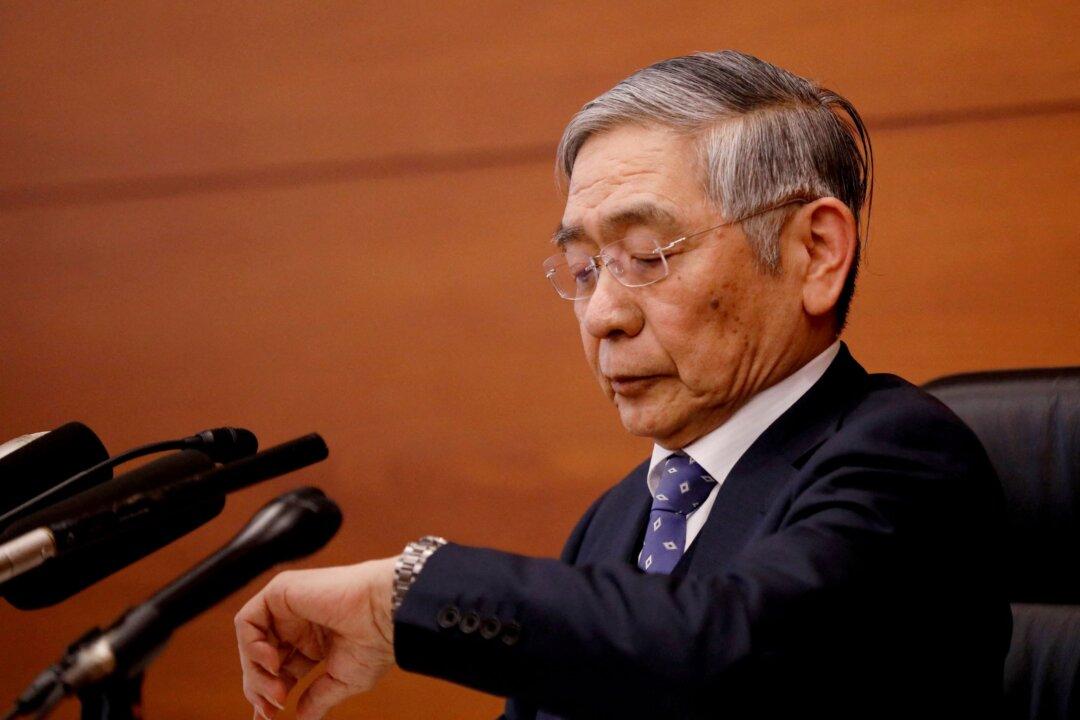TOKYO—Bank of Japan (BOJ) Governor Haruhiko Kuroda said on Tuesday the yen’s recent moves were “somewhat rapid”, joining a chorus of policymakers who have warned that sharp falls in the currency could hurt the country’s import-reliant economy.
The remark was the strongest warning by Kuroda on yen moves since the currency’s slide to a six-year low last week, and a sign the BOJ shares the government’s concern over the potential damage to corporate sentiment from sharp yen falls.





